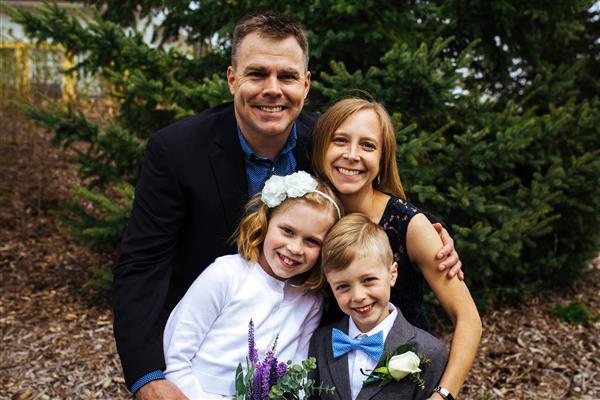Phone: 651.744.3860
Email:
Degrees and Certifications:
Ms. Corbett
Hello and welcome to another school year at Highland Park Senior High School! I’m looking forward to getting to know each of you and sharing my love of learning and thinking with you! On this site you will find information about myself, an overview of courses, and contact information.
About Mrs. Corbett
Where I am...
Hi! My name is Mrs. Corbett and I started teaching in SPPS in 2006 and have been at Highland Park since 2010. This year I will be Introduction to Engineering & Design (PLTW), Theory of Knowledge, Accelerated Algebra 2, and Introduction to Computer Programming and 3-Dimensional Modeling. Outside of the classroom, I help coach the HPSH Girls Golf and Nordic Ski Team (which you can learn more about here).
Where I've been...
I graduated from Bloomington Kennedy High School in 1998 and then spent two years at St. Mary's University in Winona, MN where I played on their inaugural women's hockey team. I then transferred to and eventually graduated from St. Cloud State University in 2003 with a bachelor's degree in both Mathematics and Meteorology. I then spent two years volunteering full time with Twin Cities Habitat for Humanity through AmeriCorps. After that I received my license through the University of Minnesota's post-baccalaureate program, and completed my Masters in Education there in 2009 and my CTE licensure in 2012. Outside of teaching, I enjoy being active and outside and spending time with my husband and kids. Some of my favorite activies are running, skiing, biking, camping, hiking, and gardening. I still even play hockey! I have a daughter, Addie, who now goes to HPSH, and a son, Max, who keeps us busy with his soccer, hockey, and baseball schedules!
Class Sessions and Overviews
-
Introduction to Computer Programming
An introductory course that covers a variety of topics in computer technology, including the following:
1. 3D Software Modeling
2. Programming
3. Image Editing
4. Cloud computing, collaboration, and task management
5. The MYP Design Cycle - Investigate, Plan, Create, EvaluateIntroduction to Engineering Design
Students dig deep into the engineering design process, applying math, science, and engineering standards to hands-on projects. They work both individually and in teams to design solutions to a variety of problems using 3-D modeling software, and use an engineering notebook to document their work.
1. Design and Problem Solving
2. Assembly Design
3. Thoughtful Production Design
4. Making Things MoveAccelerated Algebra 2
This is a complete high school algebra 2 course that satisfies the State of Minnesota’s mathematics requirement for high school graduation and prepares students to continue their study of math in pre-calculus. The IB learner profile is used as a guide in developing and implementing the curriculum. Being a mathematics course, an emphasis is placed on developing inquirers and thinkers while trying to have students reflect upon what they have learned.
Units of Study:
- Foundations for Functions
- Linear Functions
- Linear Systems
- Quadratic Functions
- Polynomial Functions
- Exponential and Logarithmic Functions
- Rational and Radical Functions
- Properties and Attributes of Functions
- Probability and Statistics
- Sequences and Series
- Trigonometric Graphs and Identities
Theory of Knowledge
Theory of Knowledge is central to the philosophy of the International Baccalaureate program. Placed at the core of the curriculum, with the Extended Essay and CAS, it is a requirement for completing the IB Diploma. The course is meant to be an inquiry into different ways of knowing and into different kinds of knowledge. TOK students learn to evaluate the question, “how do I know what I know?”
- Core Theme – Knowledge and the Knower (Nature of Knowing, Knowledge Questions)
- Optional Themes – Knowledge and Technology, Language, Indigenous Societies, Religion, Politics
- Areas of Knowledge – Mathematics, Natural Sciences, Human Sciences, History, Arts
You will find links to your texts on your class Schoology page as well as a course syllabus.







